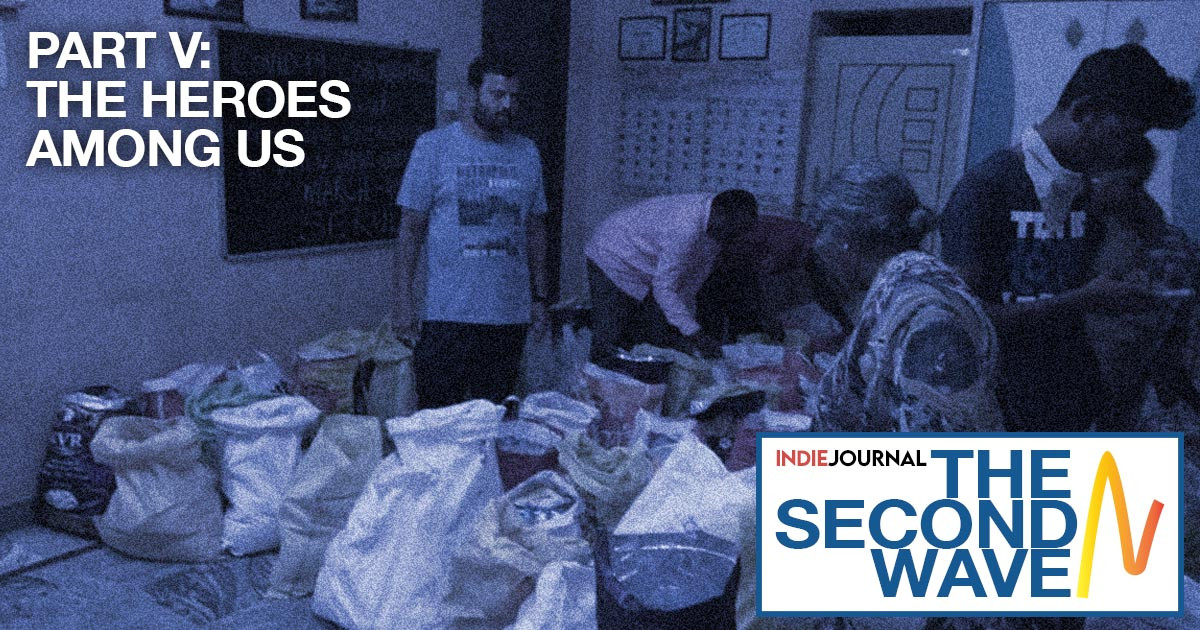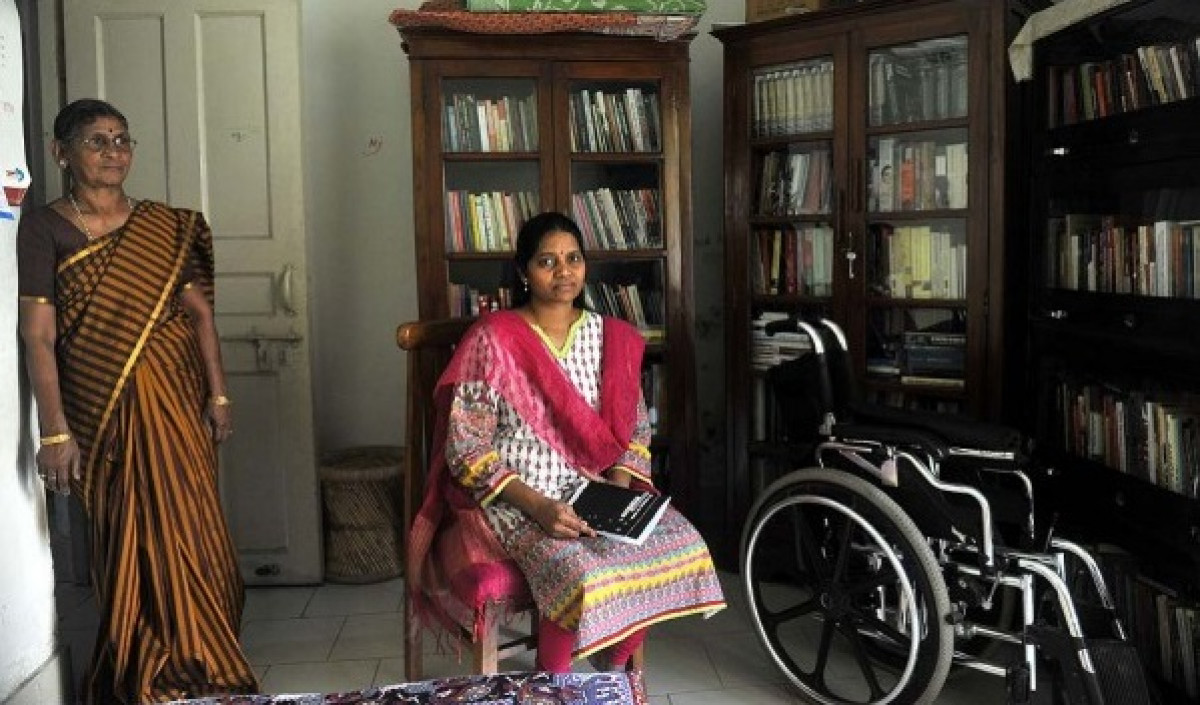India
The Second Wave: When the crisis came, people stood by each other
In the midst of the Coronavirus pandemic, the Public Distribution System was shut down and rationing stores were not fully functional.

The Coronavirus pandemic hit the globe and it worked as a rupture in the regularity of lives. The regulations made by the governments across the world had differences among them in terms of response. The lockdown shifted the notion of the population larger than the previous pandemic as almost all institutions were closed, including governance, religious centres and academic institutes. In pages of history, all these institutions were never closed at once, for so prolonged time without any intimidation. For the working-class population and migrants who are living in ghettos, the pandemic and lockdown gave them an experience as Plague, but with a difference as the Public Distribution System (PDS) was shut down and rationing stores were not fully functional. The local stores near ghettos were running out of stock of grains. Many died because of starvation and people who were relying on their daily labor for bread sustained the worst hit during this period.
Rajendra Kumar, a local from Bihar, was working at a construction site in Wagholi with his family when the lockdown was announced. "I have five family members here, about 20 people are at nearby sites from my village. The contractor had employed us on a temporary basis and he had provided food for four-five days in March 2020. When I asked him for groceries, he denied our plea and showed an inability to help. We were trying to go to work and ready to do anything, but no one was ready to take risks and let us in. We asked for help from every possible contact in Wagholi. Few political parties had given funds to the local Sarpanch and other activists to help. I managed to secure rationing for eight to 10 days from them. There were many messages on WhatsApp and numbers to call for help. I used to contact such numbers and they used to help us with some groceries. Ultimately, we had to leave for the village, but many from the native village were afraid of people coming from Maharashtra as Pune was featured as a hotspot then."
People from ghettos knew that the government was never going to come to their doorstep with any facilities. Earning bread on a daily basis was the foremost activity for the exploited elements of the masses. They had to access various organisations and local representatives for help, even for the meals. The suburbs of cities faced such a situation during the lockdown as migrated workers had to rely on other organisations for meals.
Such organisations faced great difficulty while working under imposed conditions of lockdown and distributing the food packets to the locality. ‘Ashayein’ group from Mumbai had created its own model for helping the students from other cities. Concerning the number of students trapped in hostels and other institutions across Mumbai, Ashayein Group helped many students by engaging their respective supporters and contributors equally into groups - half of the people donated, the other half cooked. Abhijit Kawale of Mumbai’s Ashayein group talked to Indie Journal about the experience of lockdown aid work. "Procuring food for people was a difficult task. We had a huge list of students living alone who were dependent on cooks, cafeterias, or mess for their meals. But we had a very small number of people who could cook for these students," he recalls.
But all this help and aid from non-governmental organisations have their own limitation of resources and reaching to the population. They knew what they were doing was necessary and not sufficient. "We managed somehow and that system worked well until the contributors and volunteers were not left with any more resources and aid capacity," Abhijit agreed when asked if these efforts were enough to help affected students. Raising funds was itself a gigantic task for these organisations.
Few students and many organisations across Maharashtra had started an independent campaign for people in the rural and tribal regions, called 'Let's Help Maharashtra'. The organisers of the campaign talked to Indie Journal about their idea and strategy for recovering from lockdown. Samadhan Patil, a representative from the Eklavya was one among the team Eklavya, one of the members of the initiative who had managed the helpline for the same. "It has become a question of survival for many," Samadhan says.
"Lockdown was extended and we were looking for funds to help. We were a handful of people willing to contribute to society. Relief work was not my area of expertise. Question of survival was becoming more critical for the vulnerable population. Wage labourers, domestic and migrant workers, nomadic tribes had lost their income due to nationwide lockdown announced to curtail the spread of COVID-19. They were struggling every day for their survival as they did not have an immediate source of income and enough savings to even spend on their daily requirements including food, groceries."
When asked about the background of this relief work, he shared that "our idea of Let's Help Maharashtra (LHM) was conceptualised on basis of a volunteer initiative named ‘Let's Reach Out Kerala’ where volunteers were contacting migrants in Kerala to link them up with ward members and community kitchens. Given the fact that, in Maharashtra, the ward members and community kitchen facilities were not as active, efficient, and intensive as in Kerala but given the presence of an intensive network of NGOs and volunteers in Maharashtra, it was found appropriate to start an initiative wherein we as a team would act as a bridge between migrants/ needy people and government agencies, NGOs, other volunteer initiatives working towards the same goal (sic)."
Under this campaign, the team was able to help almost every district with calls receiving from every region, even outside of Maharashtra. Under this, the campaigners claimed that they were able to help 11,500 people in 2,314 families across 27 districts of Maharashtra. The funds were gathered from the public funding, relying on the help received from cities. According to many, the financial help they received was from their friends and sympathisers, without any help from the government. As per the volunteers and fundraisers, people understood the gravity of the situation and genuinely wanted to help those in need, but they had financial limitations. "If we go into a lockdown again, I really hope that the government arranges a system to provide food to the needy," Abhijit says. According to them, the next lockdown will prove as catastrophic as people have lost their jobs and are still struggling to regain their hold on livelihood.
With inputs from Jayali Wavhal





